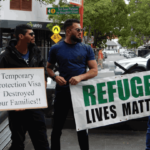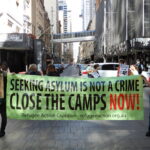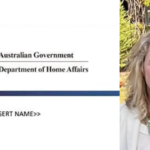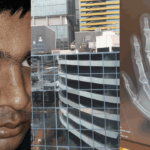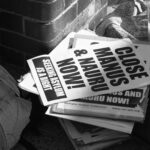Medevaced from Nauru to Brisbane Hotel Detention: An Interview With Refugee Nur Mohammed
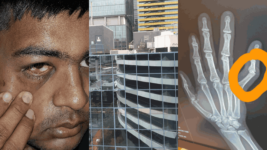
Right now, Home Affairs has five long-term offshore detainees confined in their rooms at Brisbane’s Meriton Hotel, following having transferred them to Australia to undergo medical treatment that isn’t available on the island of Nauru, where they’ve been held for almost a decade.
Reminiscent of the actions of government in 2019, when close to 200 offshore detainees were flown to Australia under the provisions of the recently passed Medevac laws to undergo treatment lacking on their island prisons, these new transferees are now sitting in hotel rooms transformed into cells.
Bengali man Nur Mohammed from Bangladesh is one of these men. The 37-year-old had been detained on Nauru since 20 November 2013, after he arrived on Christmas Island in a boat three days prior, fleeing persecution in his country of origin.
And despite what many in the Australian community might expect of a person the government has held in detention on Nauru for 9 years and 11 months when he was flown here on 23 December, Mohammed was processed as a legitimate refugee on 30 January 2015.
Cruel policy
The last time the government commenced locking up offshore detainees in hotels rooms en masse, it was under a Coalition administration. Indeed, this is the first time that the Albanese government has confined individuals in need of medical treatment in small rooms under watch of guards.
In February 2019, Labor and the crossbench oversaw the passing of the Medevac Bill, opposed by the government of the day, which established a more humane approach to allowing long-term offshore detainees to come to Australia to receive treatment unavailable in PNG and Nauru.
This saw 190-odd offshore detainees placed in hotels, known as alternative places of detention (APODs). These people remained in the APODs for years. And this period included the pandemic, which saw no provisions made for the detainees to take protective measures.
The Medevac refugees, as they became known, began being released into the community in December 2020, and last April saw the final ones set free.
As for the Medevac laws, they were revoked in late 2019, which means that Mohammed and his fellow transferees have been permitted passage to come here to undergo healthcare under the provisions of a tighter migration regime.
Ten years unlawful
Australia ratified the 1951 Refugee Convention in 1954, which means our country has agreed to provide asylum to legitimate refugees fleeing persecution. And this international agreement does not permit discrimination against individuals who arrive using certain modes of transport.
However, on 19 July 2013, the Rudd government made offshore detention mandatory for all asylum seekers arriving by boat. And as then US president Donald Trump notoriously put it in 2017, this arrangement serves to discriminate against those who “come from certain regions”.
Sydney Criminal Lawyers spoke to refugee Nur Mohammed about the conditions he’s facing within the confinements of a Brisbane hotel, what it’s currently like on Nauru, and how he hasn’t been made aware of what he’s to expect now that he’s been transferred to Australia for treatment.
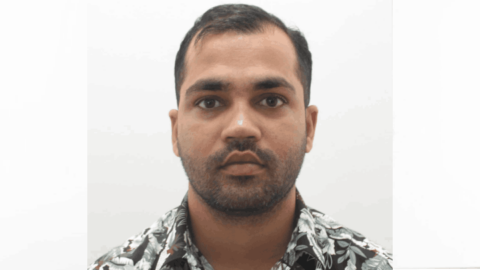
On 23 December, you were flown to Australia from Nauru after being accessed in need of medical treatment that isn’t available on the island. And since arriving here you’ve been held at Brisbane’s Meriton Hotel.
Nur, what sort of conditions are you facing in the hotel? Are you free to move around?
There is no freedom here. I’m just locked in the room. I cannot go outside. I just stay inside the room. They have guards outside. They give me food.
I’m scared here. It feels like I’m criminal. I don’t understand why they lock me up here.
For 10 years, I’ve followed the rules on Nauru. I’ve got refugee status. So, I’ve come here for treatment, but now I’m in detention.
I cannot smoke here. I cannot go outside. I cannot buy anything myself. It’s like gaol. There is security here. And there’s no exercise. I cannot do exercise here.
I just stay at home. They give me food, one time, lunch: rice, meat, fish – something like that.
Then they give some bread, tea, coffee, butter and jam at breakfast and night time. Two times they give bread and butter.
How many refugees from Nauru are being held there right now?
We came together: four people on one flight. There was another Bengali asylum seeker, a Rohingya refugee and there was another from Afghanistan. He came with me, but, right now, he stays with his family in Melbourne.
We three others are now locked up here. And another two from Nauru have come. One from Pakistan and another from Nepal.
You’re in Australia for medical reasons. Have you been receiving the treatment that you’ve been brought to the country to undergo?
I haven’t gotten any treatment here. I’m waiting. The doctor has given me the medicine of the Nauru doctor. This medicine I am taking.
So, you’ve seen a doctor here?
Yes, but I have to wait for treatment. I have to wait for a government doctor. I don’t know how long.
I am waiting 10 years for this appointment. I don’t know how long more I am waiting.
You’ve waited for 10 years?
Yes, I am waiting 10 years in Nauru for treatment. One problem, I have been suffering since 2019. My stomach problem started then.
But another problem, I have been suffering a long time. I’m in pain. I’m always taking painkillers. But there is not enough treatment on Nauru.
What have you been told by the government about your circumstances? Have they told you why you’ve been placed in a hotel, but you’ve not received any treatment yet?
I don’t know. I came here for treatment, I know that. But why I’m here and how long I’m going to stay, I don’t know.
Last Thursday, you and a fellow hotel detainee were taken to the Brisbane Immigration Transit Accommodation (BITA) facility. What was the purpose of that?
I was there for only half an hour. I was smoking. That was it. I was told I needed exercise. But then they said I was not allowed to exercise.
There was just a bit of walking in a small place. Walking, then smoking, then come back. That was it. Half an hour.
What are the conditions like on Nauru today for refugees and asylum seekers like yourself?
Nauru is very difficult. There is much danger. Every second-every minute, there is tension. It’s very hard to stay there. The people are dangerous.
Many times, there’s harassment of our people. Many times, my money and my mobile have been stolen. Many times, we cannot go outside. I’m suffering much there.
They don’t have anything available, like fruit. It’s very hard to stay there. You are not safe. There is always tension.
I’m living in a community. I stay in the house of local people, in a very small room. It’s like one container in size.
You’re one of the few offshore detainees left on Nauru, after there had been thousands held on the island about nine years ago. Do you know why you’re one of the few remaining?
I don’t know why I’m last. I have tried to come here or go somewhere else.
I have been interviewed to go to Canada. Still, I am waiting to go there. But I don’t know. It’s a slow process – everything is.
Currently, Nur, there are a lot of refugee supporters in the community calling on the Australian government to release you and provide the treatment you need.
How are you feeling about that?
I’m happy to get that support. I need treatment. I would like to contact my family. I would like to get out. That is my hope for the future.


